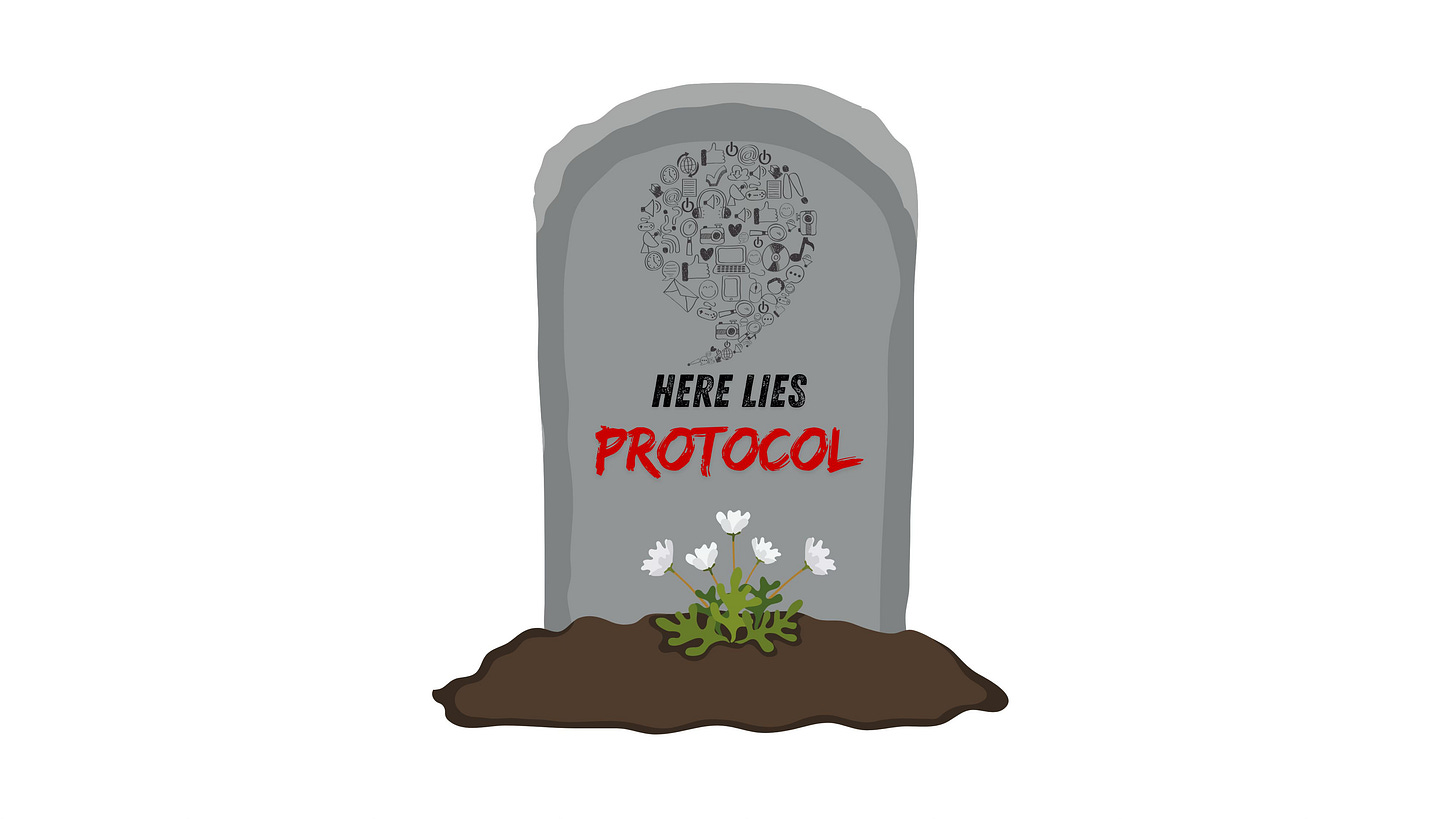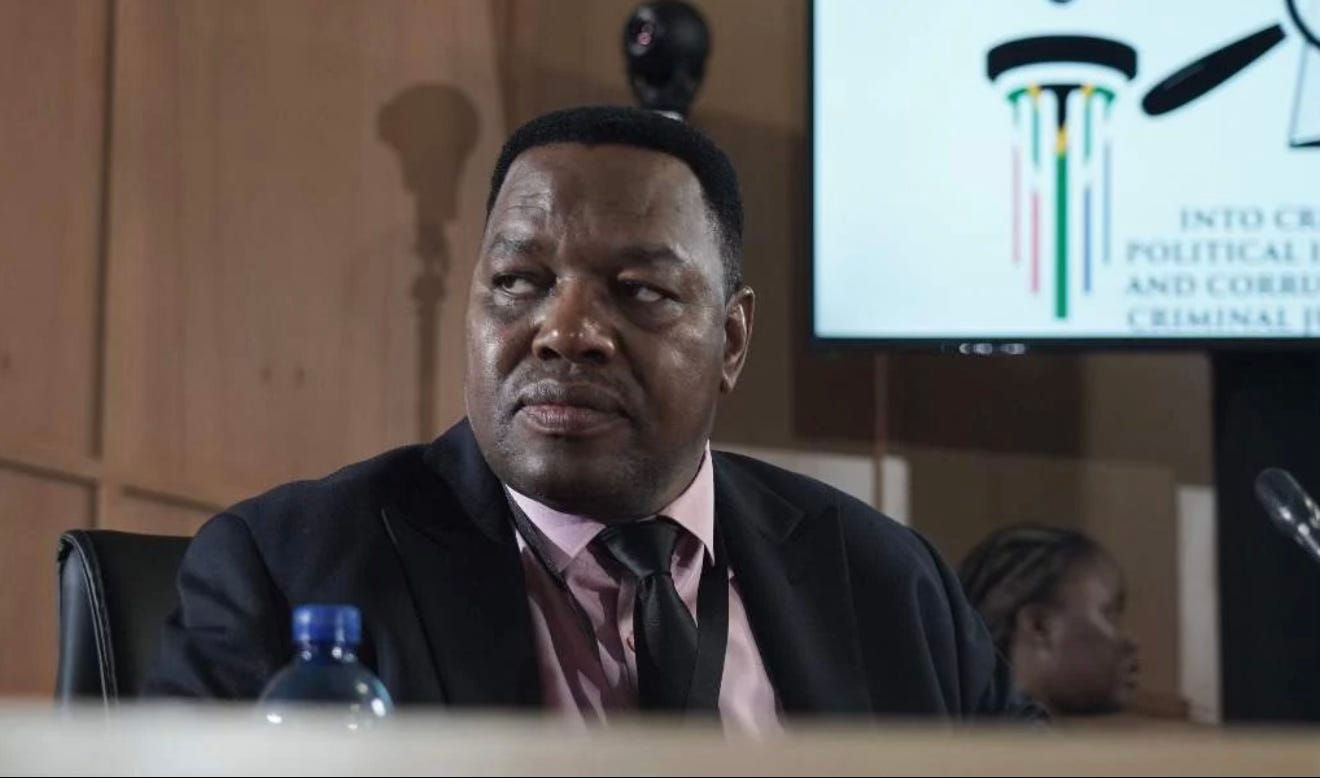Why ‘protocol’ must sometimes die
When institutions are compromised and oversight bodies fail, blind adherence to protocol becomes complicity.
The phrase “did not follow protocol” has never loomed larger in South Africa’s public discourse than it has this year. It is often weaponised to discredit whistleblowers or upright officials who dare to step outside rigid bureaucratic channels to expose wrongdoing.
Yet, as the case of KwaZulu-Natal police provincial commissioner Lt Gen Nhlanhla Mkhwanazi illustrates, “protocol” can sometimes become a convenient shield for corruption rather than a tool for accountability.
Mkhwanazi was accused of breaking ranks when he spoke publicly about the depth of corruption within the South African Police Service (SAPS). But contrary to those accusations, he had, in fact, adhered to the very protocols he was accused of undermining. He reported his concerns about the infiltration of criminal networks into SAPS to his superior, National Commissioner Gen Fannie Masemola, and to Parliament’s committee on police.
Nothing happened. The silence was deafening.
It was only after Mkhwanazi went public — laying bare the shocking collusion between senior police officers, criminal syndicates, and political actors — that both Parliament and President Cyril Ramaphosa were spurred into action.
Parliament scrambled to save face after its inertia was publicly exposed, and the President, jolted by public outrage, established the Madlanga Commission of Inquiry. This was despite being warned months earlier about political interference in policing.
The lesson is stark. Had Mkhwanazi remained bound by “protocol,” his revelations would likely have been buried, protecting powerful interests while placing him in mortal danger.
In a country where whistleblowers often face violent retribution, following protocol can mean carrying a target on your back.
The fate of Babita Deokaran, assassinated after exposing corruption in the Gauteng health department, remains a chilling reminder. She followed protocol, reported corruption to her superiors, and paid the ultimate price.
This is why the debate around “following protocol” must be reframed. Protocols are not inherently wrong; they exist to maintain order and due process. But when institutions are compromised and oversight bodies fail, blind adherence to protocol becomes complicity.
In such contexts, breaking silence is not insubordination — it is integrity in action.
South Africa finds itself at a crossroads. Our democracy cannot withstand a culture where upright officials are damned if they do and doomed if they don’t. Protocols must be reformed to ensure that those who act in the public interest are protected, not punished. Parliamentary committees, oversight institutions, and executive leadership must prove that reporting wrongdoing through formal channels is not an exercise in futility.
Until then, whistleblowers and courageous officials like Mkhwanazi will continue to be vilified for doing what their superiors should have done all along: telling the truth. South Africans understand this all too well.
They know that, without individuals willing to defy protocol and unconcerned about whether upholding integrity might be deemed “career-limiting”, systemic corruption would remain hidden in the shadows and the rot at the heart of key state institutions would fester unchecked.
Those who champion “protocol” and so-called broadcasting “norms” now appear to be fixing their sights on local social media platforms — spaces that, by design, resist the archaic rules that often constrain free expression.
Unlike traditional outlets, most independent online platforms remain largely unmoved by the threat of commercial censure or regulatory intimidation.
For them, to conform would be to surrender the very essence of their independence — the freedom to deliver content, often through satire and hyperbole, that mainstream media, beholden to corporate and political interests, would never touch.
This marks a profound shift. Where once television shows such as Kagiso Lediga’s groundbreaking Pure Monate Show carved out rare moments of political satire on television before they were shuttered at the behest of powerful political interests, today it is social media that offers the most potent platforms for irreverent critique.
Here, humour and audacity are wielded as tools of accountability, puncturing the veneer of power and drawing citizens into conversations that mainstream channels too often shy away from.
Political satire is one of the oldest and most enduring forms of free expression. By holding those in power to account through wit and humour, it draws audiences into conversations that might otherwise be shunned for their seriousness. This very ability to blend laughter with truth has, throughout history, made it a target for censorship by the powerful.
In our time, podcasters have taken up this mantle with distinction. Through their platforms, they inform and educate, while simultaneously lightening the weight of public discourse.
By weaving humour into complex and often sobering issues, they make democratic dialogue more accessible, more engaging, and more impactful. It is for this vital contribution — at once courageous, creative, and catalytic — that we recognise and honour them today.
It is precisely for this reason that Public Interest SA has introduced the Digital Courage Award for the 2025 Whistleblowers Awards.
This Award recognises the bold and innovative use of digital platforms — particularly social media such as YouTube, X (Twitter), TikTok, Instagram, and others — to promote transparency, accountability, and the protection of whistleblowers.
This award celebrates individuals, collectives, and platforms that leverage the power of digital storytelling, investigative content, and online advocacy to challenge corruption, amplify the voices of whistleblowers and anti-corruption crusaders, and inspire public engagement, especially among the youth.
Digital platforms are the proverbial hill where protocol goes to die.
In these spaces, rigid hierarchies and suffocating “norms” of traditional media lose their grip. What thrives instead is immediacy, irreverence, and unfiltered expression — qualities that allow truth to surface in ways that scripted, gatekept platforms rarely permit.
On digital platforms, the carefully choreographed rituals of “protocol” crumble under the weight of memes, satire, and viral storytelling. Here, voices previously marginalised find amplification, and uncomfortable truths escape the confines of officialdom.
Unlike mainstream media, often tethered to commercial or political interests, digital spaces embrace disruption as their very essence.
This is why political satire, investigative exposés, and citizen-led narratives flourish online. Protocol depends on control; digital culture thrives on dismantling control. In this sense, digital platforms are not just where protocol dies — they are where new, more democratic forms of discourse are born.
In essence, the phrase “did not follow protocol” should no longer be a slur against truth-tellers. It should instead remind us of the profound risks faced by those who choose to speak out, and of the urgent need to rebuild institutions so that telling the truth is not an act of personal peril, but a duty safely and honourably discharged.
___________




